The Little Red Dot has been producing big brands, such as our national carrier, Singapore Airlines, and Charles & Keith, the global footwear brand with humble beginnings!

Singapore, though small in land area, has produced a remarkable number of home-grown brands that have successfully expanded beyond our borders to become global names. Their success on the international stage demonstrates our country’s ability to influence global markets with products rooted in Asian identity and global appeal.
This global competitiveness is driven by strong government support for internationalisation and innovation, through initiatives like EnterpriseSG and various funding schemes. A national emphasis on creativity and forward-thinking policies ensures that even small enterprises can scale quickly and compete on the world stage.
“And to all Singaporeans, a very warm welcome home”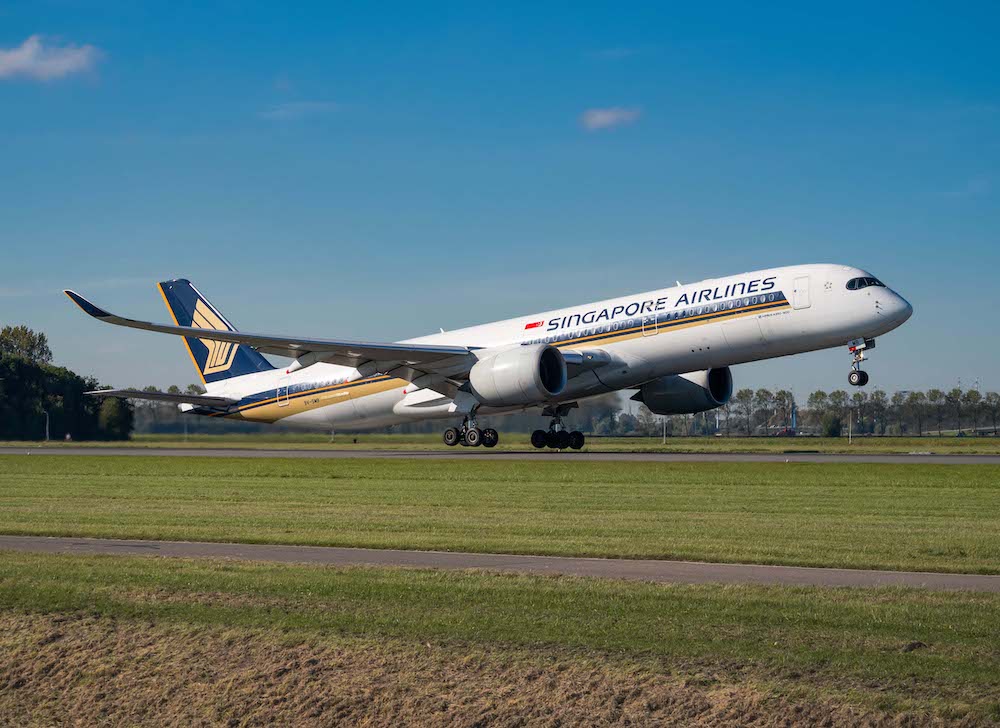 Widely regarded as Singapore’s most iconic global brand, Singapore Airlines (SIA) was founded in 1972 following the dissolution of Malaysia–Singapore Airlines. Since then, it has evolved into one of the world’s most esteemed carriers, celebrated for its outstanding service and impeccable safety record.
Widely regarded as Singapore’s most iconic global brand, Singapore Airlines (SIA) was founded in 1972 following the dissolution of Malaysia–Singapore Airlines. Since then, it has evolved into one of the world’s most esteemed carriers, celebrated for its outstanding service and impeccable safety record.
Today, SIA operates flights to over 130 destinations in more than 40 countries. Among its standout offerings are the non-stop Singapore–New York route, one of the longest flights in the world, and its ultra-luxurious Suites Class, which continues to set the benchmark for in-flight opulence. And, of course, no mention of Singapore Airlines would be complete without the Singapore Girl in her iconic kebaya, a timeless symbol of service excellence.
SIA’s global growth has been fuelled by its unwavering commitment to premium service, early adoption of new technologies, and strategic partnerships through global airline alliances such as Star Alliance. Its investment in brand reputation, customer experience, and network connectivity, has allowed it to punch well above its weight on the international stage.
Humble Snack, World Domination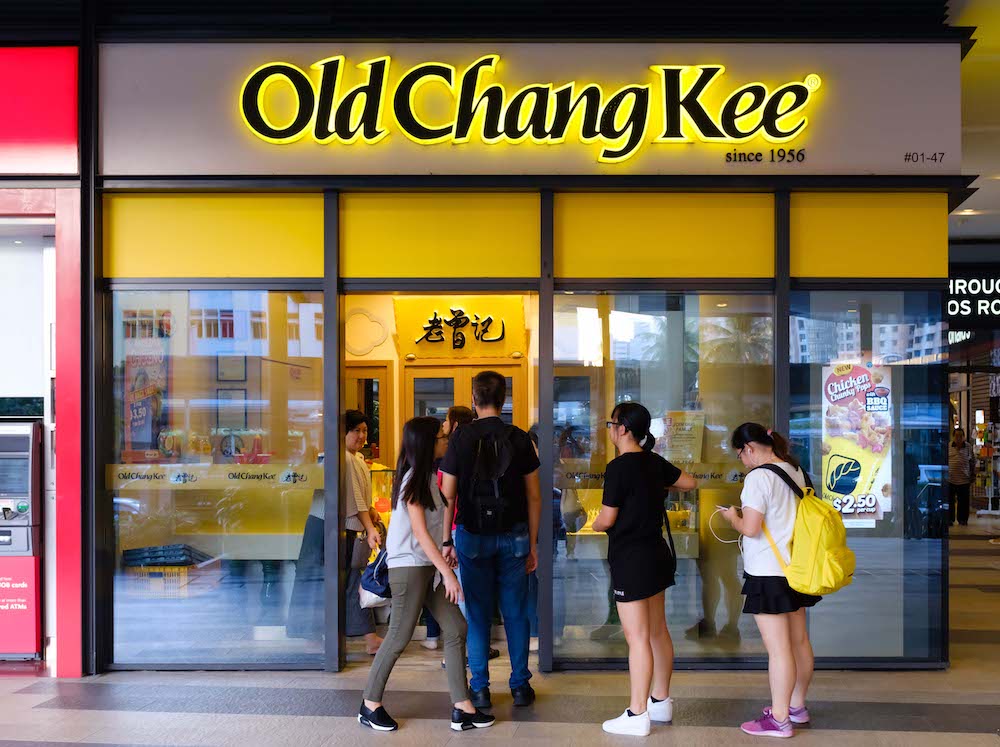 Old Chang Kee began in 1956 as a humble food stall outside Singapore’s Rex Cinema, known for its curry puff, affectionately called the Rex Curry Puff, filled with curried potatoes, chicken, and a slice of egg. In 1986, the brand was incorporated and rapidly expanded into a household name across Singapore.
Old Chang Kee began in 1956 as a humble food stall outside Singapore’s Rex Cinema, known for its curry puff, affectionately called the Rex Curry Puff, filled with curried potatoes, chicken, and a slice of egg. In 1986, the brand was incorporated and rapidly expanded into a household name across Singapore.
Today, it offers a variety of traditional snacks and local meals like sotong sticks, chicken wings, and nasi lemak – long queues are often spotted at their kiosks and shops! With over 100 outlets worldwide in countries such as Malaysia, Indonesia, Australia, and the United Kingdom, Old Chang Kee has certainly taken the humble curry puff to new frontiers.
While its menu may vary slightly to cater to local tastes in different countries, the brand stays true at heart, serving the familiar flavours and comfort food that generations of Singaporeans have grown up with.
Shoe Me the Way!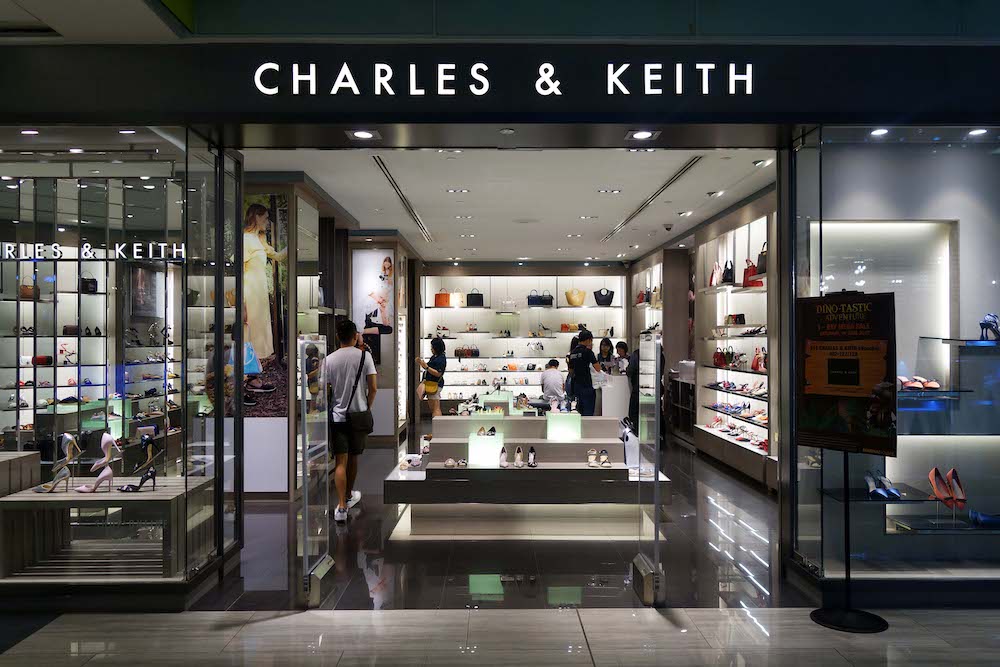 Founded in 1996 by brothers Charles and Keith Wong, Charles & Keith started as a single footwear store in Ang Mo Kio and quickly grew into a global fashion brand. Renowned for its stylish yet affordable shoes, the brand later expanded to include accessories such as bags. As of 2025, Charles & Keith boasts over 600 stores across more than 30 countries.
Founded in 1996 by brothers Charles and Keith Wong, Charles & Keith started as a single footwear store in Ang Mo Kio and quickly grew into a global fashion brand. Renowned for its stylish yet affordable shoes, the brand later expanded to include accessories such as bags. As of 2025, Charles & Keith boasts over 600 stores across more than 30 countries.
Its rapid growth can be attributed to its ability to stay fashion-forward while remaining accessible in price, a rare combination in the global fashion scene. The brand is known for its agility, frequently introducing in-season collections and trend-driven designs to keep customers engaged.
This commitment to innovation, coupled with consistent quality and savvy digital marketing, has helped Charles & Keith cement its reputation as a go-to label for modern, style-conscious consumers around the world.
Pressing All the Right Buttons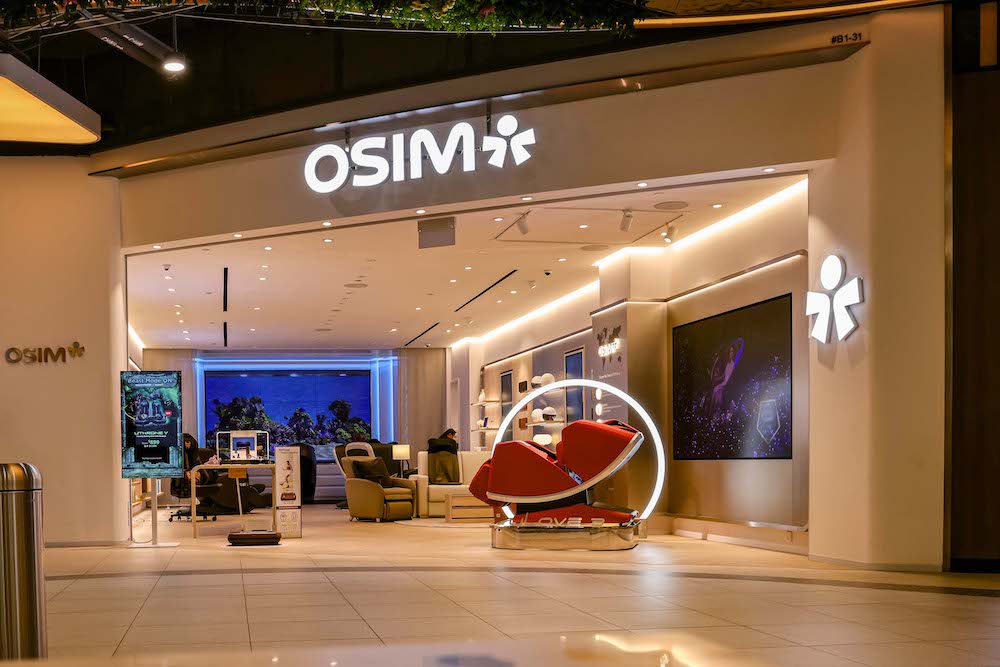 OSIM International was founded by Ron Sim in 1980 in Singapore, originally as R. Sim Trading, before rebranding to OSIM in 1993. The brand specialises in health and wellness products, with its signature massage chairs widely regarded as thoughtful gifts, often given to parents and grandparents as tokens of appreciation. Today, OSIM has a presence in over 100 cities across more than 20 countries, with strong footholds in Asia, the Middle East, and the United States.
OSIM International was founded by Ron Sim in 1980 in Singapore, originally as R. Sim Trading, before rebranding to OSIM in 1993. The brand specialises in health and wellness products, with its signature massage chairs widely regarded as thoughtful gifts, often given to parents and grandparents as tokens of appreciation. Today, OSIM has a presence in over 100 cities across more than 20 countries, with strong footholds in Asia, the Middle East, and the United States.
However, their road to success was not a smooth one. In 2005, OSIM made its first attempt to break into the US market through a joint venture with retailer Brookstone. However, the partnership struggled due to Brookstone’s failure to adapt to the fast-growing trend of online shopping, resulting in a significant financial loss. Learning from this experience, OSIM later adopted a more effective strategy, paving the way for more sustainable and successful global expansion.
A Tea-riffic Idea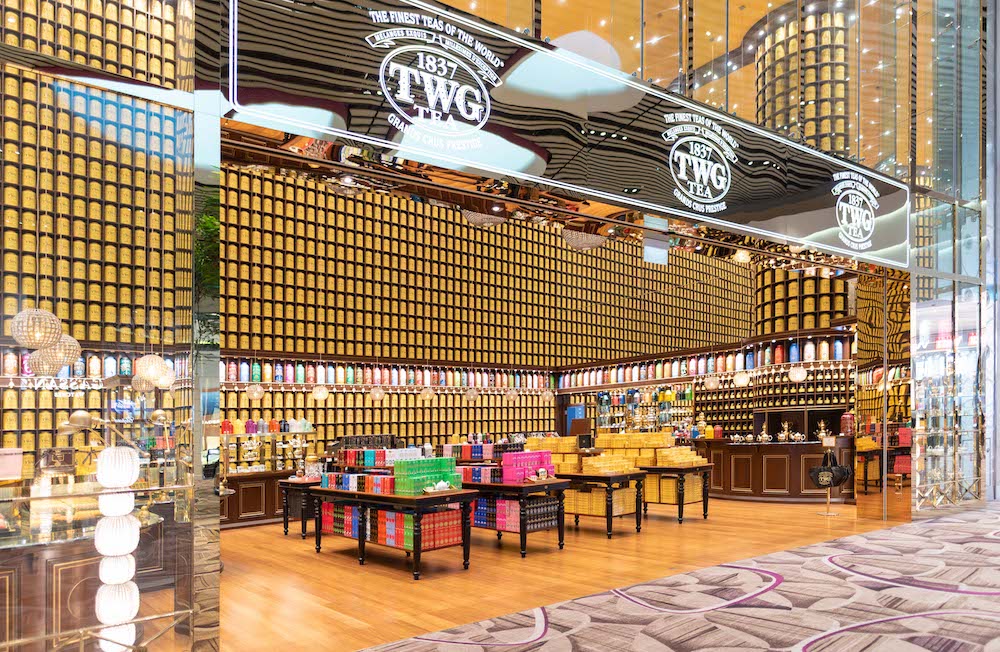 Founded in Singapore in 2008, TWG Tea (The Wellness Group) positions itself as a luxury tea brand that celebrates fine tea culture with a modern twist. Despite launching during the 2008 financial crisis, the company boldly invested in three factories and a large central kitchen, demonstrating a clear vision to build a global brand from the outset. The gamble paid off: TWG sold 650 tonnes of tea in its first year alone, a success attributed to tea’s enduring appeal and affordability during economic downturns, in contrast to the extravagance of designer goods.
Founded in Singapore in 2008, TWG Tea (The Wellness Group) positions itself as a luxury tea brand that celebrates fine tea culture with a modern twist. Despite launching during the 2008 financial crisis, the company boldly invested in three factories and a large central kitchen, demonstrating a clear vision to build a global brand from the outset. The gamble paid off: TWG sold 650 tonnes of tea in its first year alone, a success attributed to tea’s enduring appeal and affordability during economic downturns, in contrast to the extravagance of designer goods.
Though relatively young, TWG has rapidly expanded to over 70 locations worldwide, including cities like Paris, Tokyo, Dubai, and London. A key selling point is its staggering array of flavours, offering more than 800 tea varieties, with over 50 new blends added each year, alongside tea accessories, pastries, and gourmet dining experiences.
Holistic Hotels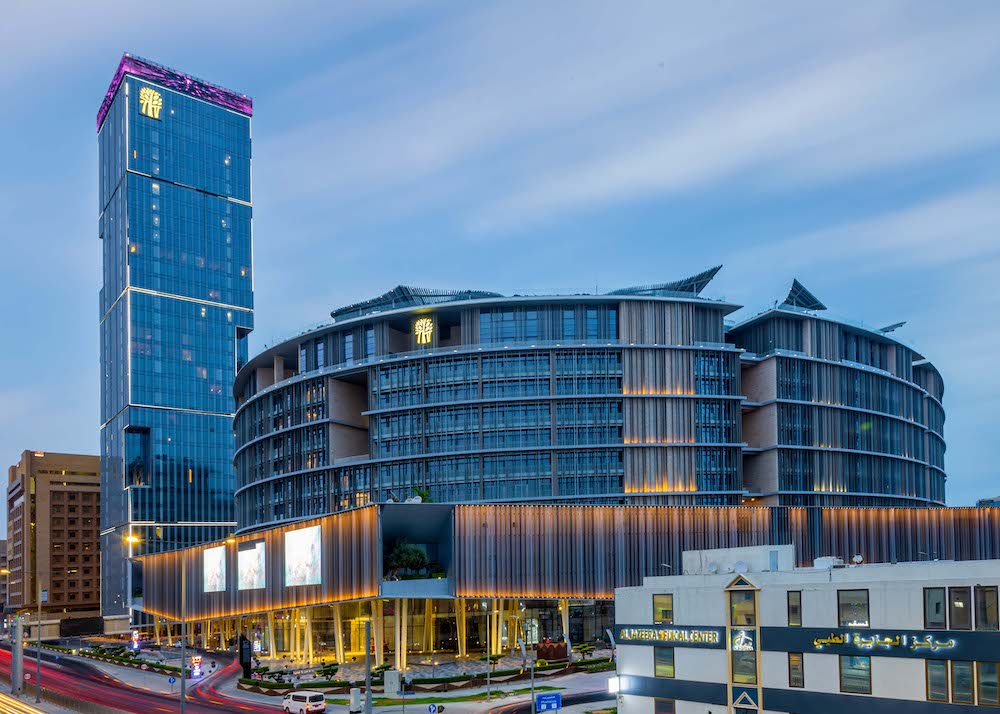 Established in 1994 and headquartered in Singapore, Banyan Tree is a global hospitality brand renowned for its luxury resorts, spas, and private residences that prioritise wellness, sustainability, and local culture. Operating across more than 20 countries with over 50 properties under brands such as Banyan Tree, Angsana, and Cassia, the company offers guests immersive experiences centred on holistic well-being. The Banyan Tree Spa, famed for its Asian-inspired treatments in tranquil surroundings, exemplifies the brand’s dedication to wellness.
Established in 1994 and headquartered in Singapore, Banyan Tree is a global hospitality brand renowned for its luxury resorts, spas, and private residences that prioritise wellness, sustainability, and local culture. Operating across more than 20 countries with over 50 properties under brands such as Banyan Tree, Angsana, and Cassia, the company offers guests immersive experiences centred on holistic well-being. The Banyan Tree Spa, famed for its Asian-inspired treatments in tranquil surroundings, exemplifies the brand’s dedication to wellness.
Sustainability lies at the heart of Banyan Tree’s philosophy, with concerted efforts in environmental conservation, community empowerment, and responsible tourism. Meanwhile, the brand pays homage to local culture by collaborating with artisans, incorporating indigenous design elements, and providing authentic cultural experiences that foster a deeper connection between guests and each destination.
Breaking Bread Launched in 2000, BreadTalk began as a boutique bakery in Singapore offering creative and locally inspired bread products. Known for its open-kitchen concept and design-driven stores, BreadTalk redefined the bakery scene with items like the Flosss Bun, a soft bun topped with pork floss and what they describe as “egg cream,” a mayonnaise-inspired spread.
Launched in 2000, BreadTalk began as a boutique bakery in Singapore offering creative and locally inspired bread products. Known for its open-kitchen concept and design-driven stores, BreadTalk redefined the bakery scene with items like the Flosss Bun, a soft bun topped with pork floss and what they describe as “egg cream,” a mayonnaise-inspired spread.
The brand’s success can be attributed to its innovative approach to traditional bakery offerings, strong focus on product quality, and consistent ability to connect with local tastes and preferences. Today, BreadTalk has more than 400 stores in markets including Thailand and China.
The Little Red Dot That Could
Local Singaporean brands often face significant challenges, including limited domestic market size, intense regional competition, and the need to adapt products and services to diverse international tastes and cultures.
Despite these hurdles, these brands have shown that with innovation, unwavering commitment to quality, and a strong, authentic identity, even small local businesses can thrive on the global stage. Their success underscores Singapore’s growing influence in lifestyle, wellness, fashion, and food, proving that the Little Red Dot makes a remarkable impact far beyond its size.



